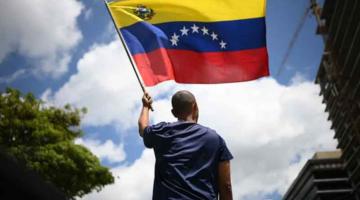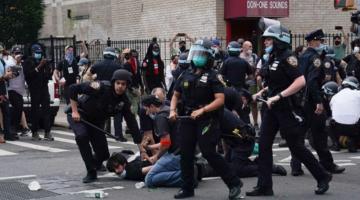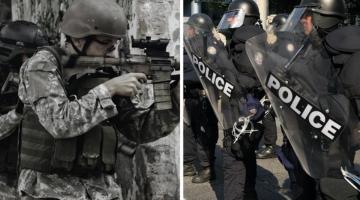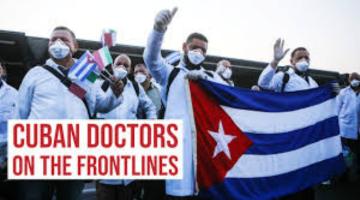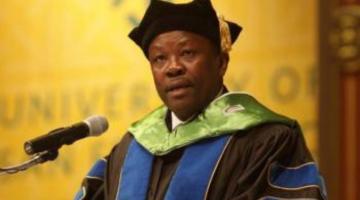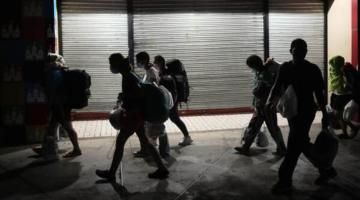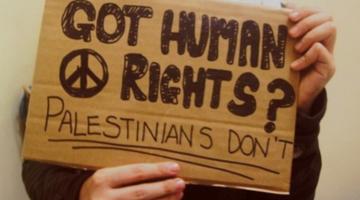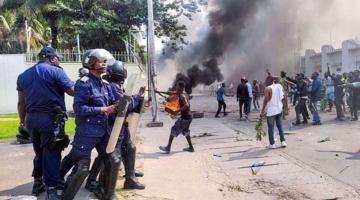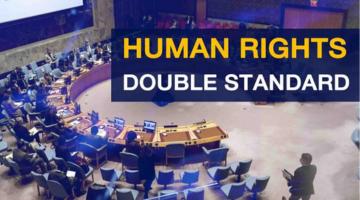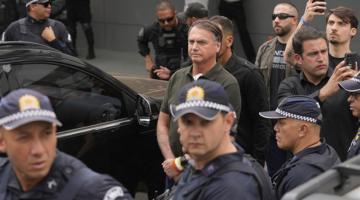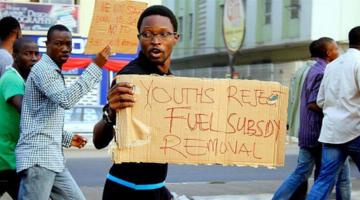Cuba hosted its international peace seminar during May Day celebrations on the island.
In the midst of May Day Celebrations in Cuba, on May 4th and 5th participants from 30 countries gathered in Guantanamo, Cuba for the 8th International Seminar for Peace and the Abolition of Foreign Military Bases. Representatives from social movements for peace, and mass based organizations from around the world came together for two days of discourse and dialogue on the conditions of peace and war during these times of US/Western backed Zionist genocide in Palestine, and the western led invasion of Haiti (with many of the same foreign interests involved in both), to declare the necessity to work towards peace and to close down all foreign military bases that are a direct threat to the sovereignty of those lands and to peace worldwide.
The Cuban Institute for Friendship with Peoples (ICAP) and the World Peace Council (WPC) brought together representatives from international organizations dedicated to the work of peace and base building to engage in detailed and passionate discourse, debate and a collective process that produced a Declaration. Hosted in the very province where the US has illegally occupied a portion of that territory to host a naval base and commit countless acts of barbarity and torture, the seminar was a critical space to witness the type of popular internationalism Cuba has always been known for. The sharp contradictions between how a people’s government uses land and what the imperial hegemon from 90 miles away does were not lost on any of the participants.
The US has illegally occupied the territory known as Guantanamo Bay against the popular will of the Cuban people since 1903. “The base was very unpopular with the Cuban people before the US Navy had even moved in, leading the Cuban government to write a letter to Washington asking for any changeover ceremony to be kept to a minimum, as there had been protests against the lease.” From this occupied territory, the US has not only directly violated Cuba’s sovereignty as a nation, planning counterrevolutionary attacks against the government, but also used it to detain thousands of Haitians fleeing the misery and policies that 30 years of US backed dictatorships created as well as the horrific human rights abuses and torture during the US “War on Terror.” Hosting an international peace seminar mere miles away is in effect an act of resistance to show the US and those that would want to see Cuba surrender to the criminal embargo that the revolution lives on.
Perhaps one of the best examples of Cuba’s deep commitment to the human right to health and to internationalism is the ELAM, or the Latin American School of Medicine, an international public medical school started by Fidel Castro in 1998. Critically important, two of the participants in the seminar were medical students in the ELAM from Palestine. Much of the participants’s comments were dedicated to expressing deep solidarity to the Palestinian people and for an end to the genocide being carried out, while connecting these issues to those that affect the region, such as IOF training of armed forces throughout the Americas, including what are commonly referred to as Cop Cities (police training grounds) throughout the United States. Zionism is inextricably linked to wider European colonialism, and so it is not just a threat to Palestine, but to the world, particularly the Global South, as Malcolm X said in the last written words before his assassination. Zionism is as much a problem in Gaza as it is in Haiti where the island’s richest man and only billionaire is a Zionist. We know our struggles are intertwined not out of some metaphysical connection but because our enemies are the same.
Representatives of organizations within the Zone of Peace campaign, launched last year in Havana, Cuba and other locations, also highlighted the necessity of building peace through bottom up popular struggle. As the Community of Latin American and Caribbean States (CELAC) declared in 2014 in Havana this region should be seen and respected as a Zone of Peace. However, this state centered declaration has not necessarily translated on the ground. For the Zone of Peace campaign, a real and lasting peace is only won through popular struggle for the rights of peoples and nations to self-determine and be free of warmongering from US/Western imperialism. Spaces like this seminar are critical to building relationships with other anti war and peace organizations and to build awareness for the campaign, as well as to push for mass support on issues raised within the campaign, such as rejecting any and all pretexts for invading Haiti.
Understanding that military bases and other similar installations represent direct threats to the sovereignty and self determination of the people and land where they are located, often without the support of the people and at the expense of the natural environment, it becomes clear that mass based popular struggle and broad movement to shut down these bases are the only forces that can effectively confront these imperialists. Peace, as defined by the Black Alliance for Peace, is not the absence of conflict, but rather the achievement by popular struggle and self-defense of a world liberated from the interlocking issues of global conflict, nuclear armament and proliferation, unjust war, and subversion through the defeat of global systems of oppression that include colonialism, imperialism, patriarchy, and white supremacy.” As the late Chairman Fred Hampton once said, “Let me say peace to you if you’re willing to fight for it.”
Clau O'Brien Moscoso is an organizer with the Black Alliance for Peace in the Haiti/Americas Team. Originally from Barrios Altos, Lima, she grew up in New Jersey and now lives between both countries.


